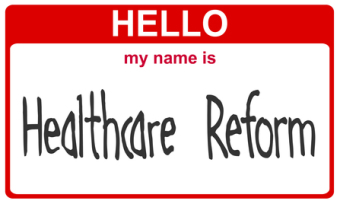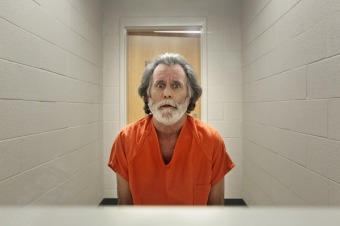Fixing Patients In A Broken Healthcare System
 "Status Quo, you know that is Latin for "the mess we're in."" -Ronald Reagan
"Status Quo, you know that is Latin for "the mess we're in."" -Ronald Reagan
As I glanced at the chart of my next patient I felt my heart sink. It was littered with warning phrases; words like progressing, recurrence, and worst of all, suspicious. Most of the time these charts are filled with unintelligible scribble recorded in a half-hearted SOAP format. A few lab results, a differential diagnosis or two, followed by the solution to the patient's ailment. However, as a medical student, you learn to develop an eye for the warning phrases. Once they begin to pop up you know that a doctor is trying to communicate that this patient’s findings are giving them a bad feeling. It seems that once you have been in the game for some time you develop a visceral reaction when you see certain patients. It transcends the lab tests, the imaging studies, even the all hallowed physical exam. There is some thy of "gut factor" experienced physicians develop, and evidently my patient had triggered a few on her way to see me.
“Do you people even care if I live or die!?” My patient blurted out as I entered the room, she looked tired, exasperated, and scared. Her question left me reeling, but only for a split second. I knew that this was one of those questions that required a swift and definite answer. You have a similar time frame when your wife or girlfriend inquires about her outfit and if it makes her look fat. Of course in that case the only response is an immediate and decisive “are you kidding, no....” Thought the implications of this encounter where much more serious. I did my best to deliver an answer dripping with as much empathy and reassurance as I could heap on, but I knew in my heart that I could not deliver the full truth to my patient.
Of course it’s ludicrous to think that any doctor would ever have total indifference toward the lives of their patients, however, we are the face of a system that, by some measure, truly does not care. This patient had recently lost her job and the “perks” of health insurance that came with it. I knew that eventually she would be able to get the care she needed but I could not have confidence in the timeliness of this remedy. This is understandably disconcerting for someone with a mass relentlessly growing (and possibley spreading) inside your body, with no regard for the timing of an overloaded clinic schedule.
The simple reality is that we work in a world of limited resources and at some point there must be people who will bear the brunt of this limitation. As it stands now the nature of selection favors those who have the means to pay for options. In some ways, this may always be the case but I do feel that we can do alot to make the system better. The political rhetoric surrounding health care at the moment is in many ways missing the boat because no matter how many people you give access to health care we still come back to this issue of limited resources. Sure you can give everyone health insurance but it won’t mean anything if it takes 5 years for an appointment to get your colonoscopy done so the doctors can rule out colon cancer. All you have done is substituted one form of selection for another.
I do not know what will become of my patient. I want to truly believe she will get all the appointments in all the free clinics that she needs in a timely manner so that she can go on and live a meaningful life. Though by the end of our visit, after calling various clinics, and coordinating lab tests that must be complete before surgery, I have begun to develop an imperceptible feeling in the pit of my stomach. I cannot seem to shake it off as I go back into the exam room. I try my best to hide it and leave my patient with a bit of hope as we part ways.
As I go forward in my medical training I not only see the challenges of developing my own clinical skills as a doctor but I also see that future physicians will be taking over a health care system that is, at best, overburdened and, at worst, dysfunctional to the point of breaking. It is for this reason that our health care system is in need of a different type of doctor or at least a greater variety of them. Attributes like creativity, vision, outside-the-box thinking, and risk taking are likely not the ones that got you a spot in medical school or residency. However those character traits are the ones that must be cultivated in the next generation of physicians as we move forward in finding better ways to care for our patients.


 2 Comments
2 Comments




"I wouldn't do it twice, but I would not 'not' do it once."
- ZDoggMD